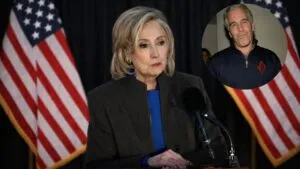Free speech is something American democracy doesn’t function without. It is enshrined in the First Amendment of the U.S. Constitution.
The U.S. Supreme Court plays a crucial role in interpreting the scope and limitations of this fundamental right.
Over the past decade, the Court has addressed numerous free speech cases, significantly impacting how speech is protected or restricted under the law.
Now, I would like to talk about some of the most interesting ones.
Table of Contents
Toggle303 Creative LLC v. Elenis (2023)
In 303 Creative LLC v. Elenis, the Supreme Court ruled that states cannot compel a website designer to create content that conveys messages they disagree with.
The decision underscores the protection of individual expression and the boundaries of state intervention in creative services.
- Date: 2023
- Decision: States cannot force a website designer to create designs with messages they disagree with.
- Author: Neil Gorsuch
The case highlights the balance between anti-discrimination laws and First Amendment rights, reinforcing that compelled speech by the state is unconstitutional.
Counterman v. Colorado (2023)
The Court decided that true threats of violence do not fall under the protection of the First Amendment.
It established that proving recklessness is sufficient for determining if speech constitutes a true threat, which does not require the intention to carry out the threat.
- Date: 2023
- Decision: True threats of violence are outside First Amendment protection; proof of recklessness is sufficient.
- Author: Elena Kagan
The decision clarifies the limits of free speech concerning threats and highlights the protection of individuals from potentially harmful speech.
City of Austin v. Reagan National Advertising of Austin (2022)
In this case, the Supreme Court ruled that the distinction between on-premises and off-premises signs is content-neutral.
It means that such regulations do not violate the First Amendment as long as they are applied uniformly without targeting specific content.
- Date: 2022
- Decision: Distinction between on-premises and off-premises signs is content-neutral.
- Author: Sonia Sotomayor
The ruling supports the idea that certain regulatory distinctions are permissible under the First Amendment, provided they do not favor or discriminate against particular messages.
Manhattan Community Access Corp. v. Halleck (2019)
The Supreme Court held that private entities operating public access channels are not state actors, meaning they are not subject to the same First Amendment constraints as government entities. This case clarified the scope of free speech protections in the context of public access television.
- Date: 2019
- Decision: Private entities operating public access channels are not state actors.
- Author: Brett Kavanaugh
The court rule outlines the distinction between private and state action in free speech cases, influencing how First Amendment protections are applied in various contexts.
Janus v. AFSCME (2018)
The Court ruled that extracting agency fees from non-consenting public-sector employees violates the First Amendment. The decision significantly impacts union funding and the rights of public-sector employees regarding mandatory union fees.
- Date: 2018
- Decision: Extraction of agency fees from non-consenting public-sector employees violates the First Amendment.
- Author: Samuel A. Alito, Jr.
The ruling affects the financial structure of public-sector unions and underscores the protection of individual speech and association rights.
Minnesota Voters Alliance v. Mansky (2018)
The Supreme Court struck down a Minnesota law that banned political apparel at polling places, finding it violated the Free Speech Clause of the First Amendment. The court’s ruling highlighted the importance of free expression even in regulated spaces like polling stations.
- Date: 2018
- Decision: Ban on political apparel at polling places violates the Free Speech Clause.
- Author: John Roberts
It reaffirms the protection of political speech and expression in public spaces, even within regulated environments such as polling places.
Heffernan v. City of Paterson (2016)
In this case, the Court ruled that employees can challenge employer actions that prevent political activity, even if the employer’s actions were based on a mistaken belief about the employee’s political activities.
- Date: 2016
- Decision: Employees can challenge employer actions preventing political activity.
- Author: Stephen Breyer
The ruling reinforces the protection of employees’ rights to free speech and political activity, ensuring they are not penalized based on assumptions or mistakes about their conduct.
Reed v. Town of Gilbert (2015)
The Supreme Court held that laws targeting speech based on its content are presumptively unconstitutional.
It reaffirms the high level of scrutiny applied to content-based restrictions on speech under the First Amendment.
- Date: 2015
- Decision: Content-based laws targeting speech are presumptively unconstitutional.
- Author: Clarence Thomas
Reed v. Town of Gilbert case emphasizes protection against government actions that discriminate against speech based on the content, ensuring robust free speech protections.
McCutcheon v. FEC (2014)
The Court ruled that regulation of campaign contributions must not aim to reduce money in politics, focusing instead on preventing corruption.
It impacts campaign finance laws and the extent to which monetary contributions to political campaigns are protected under the First Amendment.
- Date: 2014
- Decision: Regulation of campaign contributions must not aim to reduce money in politics.
- Author: John Roberts
The ruling affects campaign finance, highlighting the balance between preventing corruption and protecting political speech through contributions.
Lane v. Franks (2014)
In this case, the Supreme Court decided that public employees’ sworn testimony outside the scope of their job duties is protected by amendments.
It underscores the protection of truthful speech by public employees when acting as private citizens.
- Date: 2014
- Decision: Public employees’ sworn testimony outside job duties is protected by the First Amendment.
- Author: Sonia Sotomayor
The result strengthens the free speech protections for public employees, particularly in their capacity as private citizens participating in legal proceedings.








